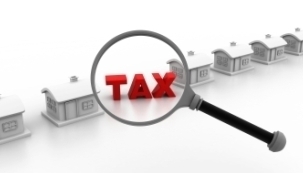Most landlords believe they cannot claim VAT back on their properties. This post looks at what tax landlords can claim VAT back on.
By Steve Sims, tax consultant and financial journalist in For Landlords.

Most landlords believe that they cannot reclaim VAT on letting business expenses because renting out homes is a VAT exempt business activity.
However, this is not necessarily true.
If a landlord is self-employed and registered for VAT, even if their trade or profession is completely unrelated to letting property, they may be able to reclaim the tax on some letting business costs.
The solution comes down to applying European Union VAT rules and the UK definition of a letting business.
Council Directive 2006/112/EC Article 9 explains that “exploitation of tangible or intangible property for the purposes of obtaining an income therefrom on a continuing basis shall in particular be regarded as an economic activity.”
Sections 264 and 265 of The Income Tax (Trading and Other Income) Act 2005 defines a UK or overseas property business as one carried on to generate an income.
Criteria for claiming VAT back?
So, letting property is exploiting tangible property to obtain an income according to EU and UK tax law, so meets the conditions for reclaiming VAT, but only under specific circumstances:
1. The landlord has to be VAT registered, such as a self-employed plumber, market trader or bookkeeper.
2. The landlord is then granted a partial exemption for VAT on property business expenses if they pass one of two tests:
a) The average monthly VAT incurred by the letting business is less than £625 and the value of exempt supplies – such as the rents – does not surpass 50% of total business supplies.
Providing the turnover of the landlord’s non-letting business is always more than rents received each month and VAT on both sets of business expenses is less than £625 a month, this test should always be passed with ease.
b) Total VAT incurred less VAT on costs offset against VATable supplies is less than £625 and the value of exempt supplies do not surpass 50% of total business supplies.
This test is even simpler to pass for businesses with low costs, as the landlord subtracts the VAT on their business expenses from the £625 limit and has the balance available for letting business expenses.
How much is the claim worth?
VAT is a complicated tax and some other rules come into play.
First, the landlord has to know their limits - £625 a month equals a quarterly VAT limit of £1,875. This is important because VAT returns are filed quarterly and on specific dates related to when the business registered for the tax.
That £1,875 a quarter represents £9,375 of expenses including VAT that a landlord can reclaim.
If a big property business bill comes in at more than £9,375 in a quarter, no VAT on the property business can be claimed in that quarter because the qualifying tests are failed.
But all is not lost because the VAT tests are also carried out at the year-end and if the average VAT claim per month hits below the limit, then a large VAT claim is recoverable.
Points to consider
Some more points need clearing up as well –
- Because a landlord has one VAT registration does not mean VAT is charged on rents even if some VAT on property business expenses is recovered under partial exemption rules, rents are always VAT exempt
- Landlords who only trade as such cannot register for VAT because their business is VAT exempt.
- Landlords who have incurred VAT on property business expenses have a six-month window prior to registration which they can revisit to recover any tax, so timing when to register is crucial
- Any self-employed individual registered under the flat rate VAT scheme will be limited to reclaiming property business expenses at their flat rate, which is likely to be significantly lower than the standard rate of 20%, so they should consider switching out of the scheme to maximise claims
How to claim back VAT?
VAT is a no man’s land for many accountants as well as traders and landlords due to the complexity of the rules, so if you run a self-employed business and also let property, talk the options over with a VAT professional.
Whether someone can take advantage of partial exemption will depend on their individual financial circumstances as this is not a one-size-fits-all tax solution.
As always with tax, run the numbers to make sure the extra time and administration involved in making VAT returns is cost-effective.
To learn more about maxisiming your property investments please visit our Landlord Knowledge centre.
Want to know more?
You can learn about our specialist landlord insurance by clicking here.
